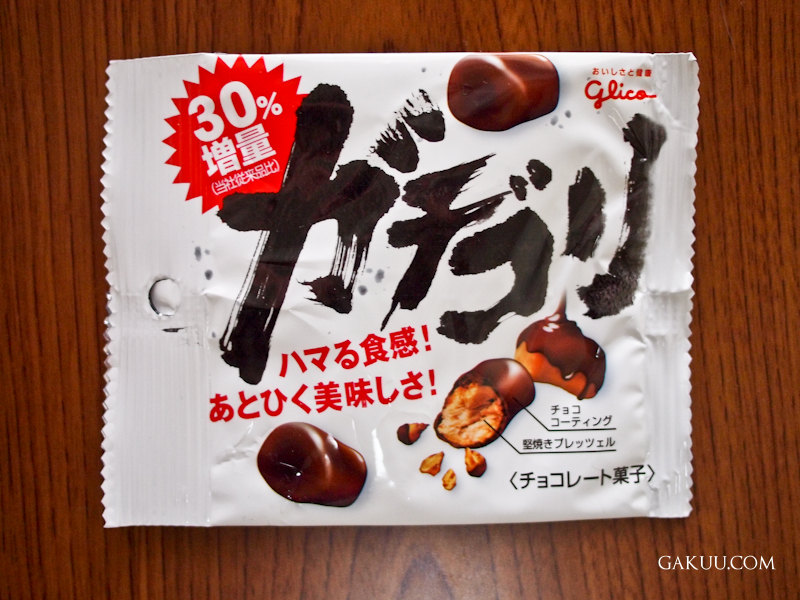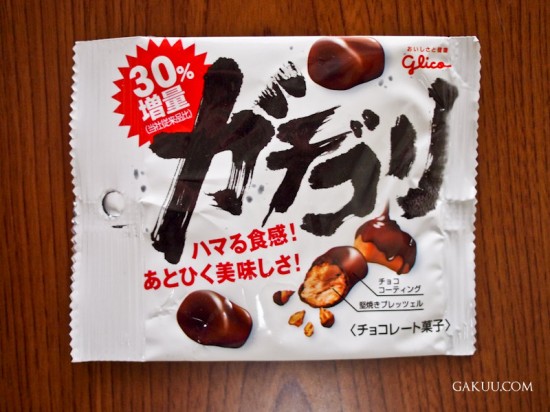Have you chomped down on Gachigori before? It’s made up of two onomatopoeic words combined together for maximum effect. Can you guess what?
ガチゴリ
A bit of a mystery at first, this unusual snack. But after a bit of research it all falls into place. Two words that mean tough or hard:
ガチガチ can mean rigid, stubborn, frozen solid or even the chattering of teeth. It’s more like a frozen image.
ゴリゴリ means scraping, raw food, hard, starchy or inflexible. In contrast this one refers more to the feeling one gets touching or biting into something (like carrots perhaps).
Stuff together then, how on earth should we interpret it as a product name? Perhaps something like:
Tough Crunch
ハマる食感!あとひく美味しさ!
はまる しょっかん! あとひく おいしさ!
An addicting sensation! A moreish taste!
A couple of colourful words here that can really help bring more life to your sentences. ハマる means to be ‘fit into’ or ‘get stuck’ into something, both in the literal and figurative sense. Here then, it has that feeling of being infatuated with something. あとひく comes from the phrase 後を引く and basically means the same thing – something that draws you back to it even after you’ve had it.
Another word very similar to this is ヤミツキ (properly written as 病み付き) and means to ‘fall ill’. However, more often than not these days it can be found being used much more under its second meaning – to get hooked on something (like gambling or food). One usage I’ve seen out and about in restaurants is やみつきキャベッツ – an additively tasty dish made of cabbage!
Finally, as a last bit of trivia, it appears that がち is also used by young people as an equivalent to マジで or 真剣に – meaning ‘really’ or ‘seriously’. マジで reportedly has become overused, so an alternative was sought and found in がち. Interestingly, 真剣勝負 (a serious competition which one puts all their heart into) can be called ガチンコ in slang.
For example:
ガチでやばい!
In more regular Japanese:
本当に大変!
This is really bad! / That sucks! / Amazing!
For example: 遅刻しそうで、がちでやばい! – Damn! I’m gonna be late.
※ やばい in itself is another young person’s expression with a wide range of uses. It can most often be loosely translated to 大変 or 困る – to be very difficult/serious or worrying – but usually is meant much more jovially.
*****
So thinking of がち in this way, we can perhaps take ガチゴリ to be something more like 本当にごりごりしてる – really tough or really crunchy chocolate. It certainly was.


Leave a Reply